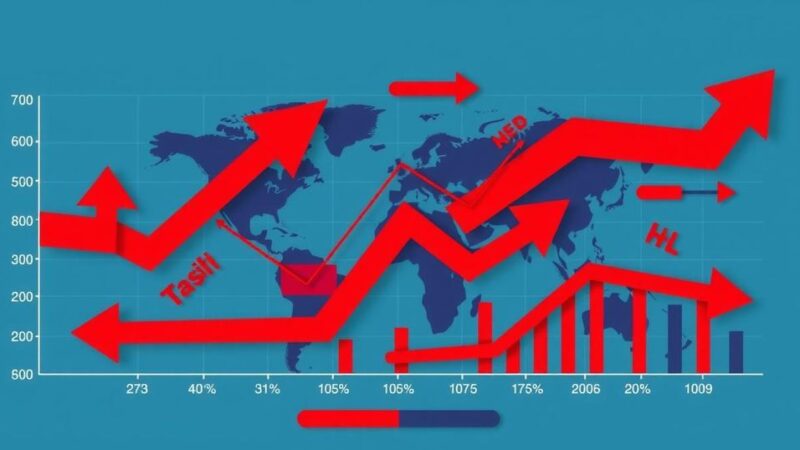Biden’s December trip to Angola underscored persistent colonial legacies and Africa’s dependency on resource extraction. The Lobito Corridor project aims to enhance trade in raw materials but risks reinforcing commodity reliance. Africa’s trading patterns remain underdeveloped, struggling with trade deficits and dependency on primary commodities. The opportunity exists for Africa to leverage the transition to net-zero by promoting domestic value addition and sustainable practices to strengthen its position in global supply chains.
Joe Biden’s early December visit to Angola—the first of his presidency to Sub-Saharan Africa—highlighted the enduring impact of colonial development paradigms focused on resource extraction. A significant aspect of his trip was the Lobito Corridor project, intended to streamline the export of raw materials from Central Africa via the Angolan port, raising concerns about continued reliance on commodities amid a changing geopolitical landscape.
Despite signaling a renewed U.S. commitment to Africa, the Lobito Corridor illustrates persistent issues of economic dependence. Currently, Africa’s commodity exports compose 90% of total merchandise exports, a statistic that underscores challenges to economic development and integration into global supply chains. The risks are substantial, including heightened unemployment and migration pressures exacerbated by climate change.
Colonial legacies are evident in the infrastructure, which has typically prioritized resource extraction over endogenous growth. These transport networks were designed to facilitate the transfer of raw materials to Europe, entrenching Africa within a cycle of poverty and dependency. Economic disparities between developed and developing countries have remained, as resource-rich nations struggle against trade imbalances.
The Lobito Corridor connects key mining regions in Zambia and the Democratic Republic of Congo to Lobito, supporting western efforts to secure critical minerals for electronic and automotive industries in the context of geopolitical rivalries, particularly with China. U.S. and EU backing for this project indicates a strategic pivot to diversifying supply chains amid growing global energy transitions.
China’s role in Africa’s economic landscape is significant, having overtaken the U.S. as Africa’s largest trading partner in 2009. This dominance places African nations in a vulnerable position as raw materials drive trade, leaving them susceptible to trade deficits—estimated at $63 billion with China in 2023. Despite engagements through trade agreements, U.S. trade with Africa remains marginal compared to countries like Vietnam.
Vietnam’s successful integration into global supply chains starkly contrasts with Africa’s ongoing reliance on commodity exports and stagnation in technological advancement. While Vietnam has significantly increased its manufacturing exports, African economies remain trapped in exporting raw materials. The consequences of this model have led to detrimental macroeconomic outcomes, including insufficient economic growth and stability.
The current global transition towards net-zero emissions provides a pivotal opportunity for Africa to break free from the colonial resource extraction model. By fostering domestic value addition and prioritizing sustainable industries, the continent can enhance its presence within global supply chains, especially those aligned with green technologies. This shift would not only address economic disparities but could also significantly mitigate environmental impacts.
Enhancing downstream processing within Africa would not only augment the value derived from commodities but would also support local economies and stimulate intra-African trade. The success of the Lobito Corridor hinges on embracing long-term strategies that prioritize sustainable development—enabling Africa to move beyond its colonial past and emerge as a competitive participant in global markets.
In conclusion, Joe Biden’s visit to Angola highlighted significant challenges facing Africa in its pursuit of economic growth and sustainability. The Lobito Corridor project, while indicative of renewed U.S. engagement, continues to perpetuate reliance on resource extraction, echoing colonial-era patterns. Moving forward, Africa must prioritize sustainable economic development and value addition to break free from historical dependency and enhance its integration into global supply chains.
Original Source: www.cnbcafrica.com






